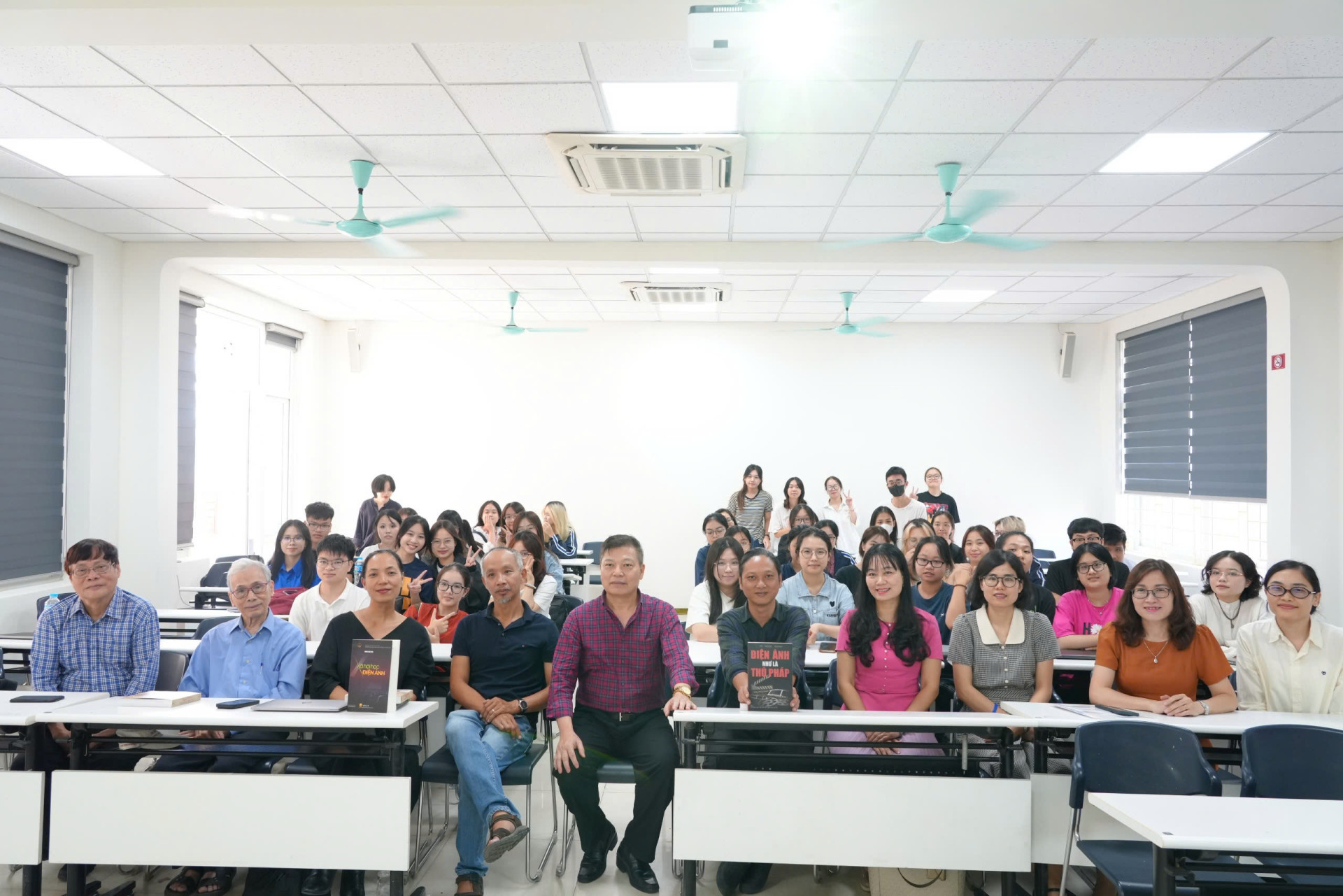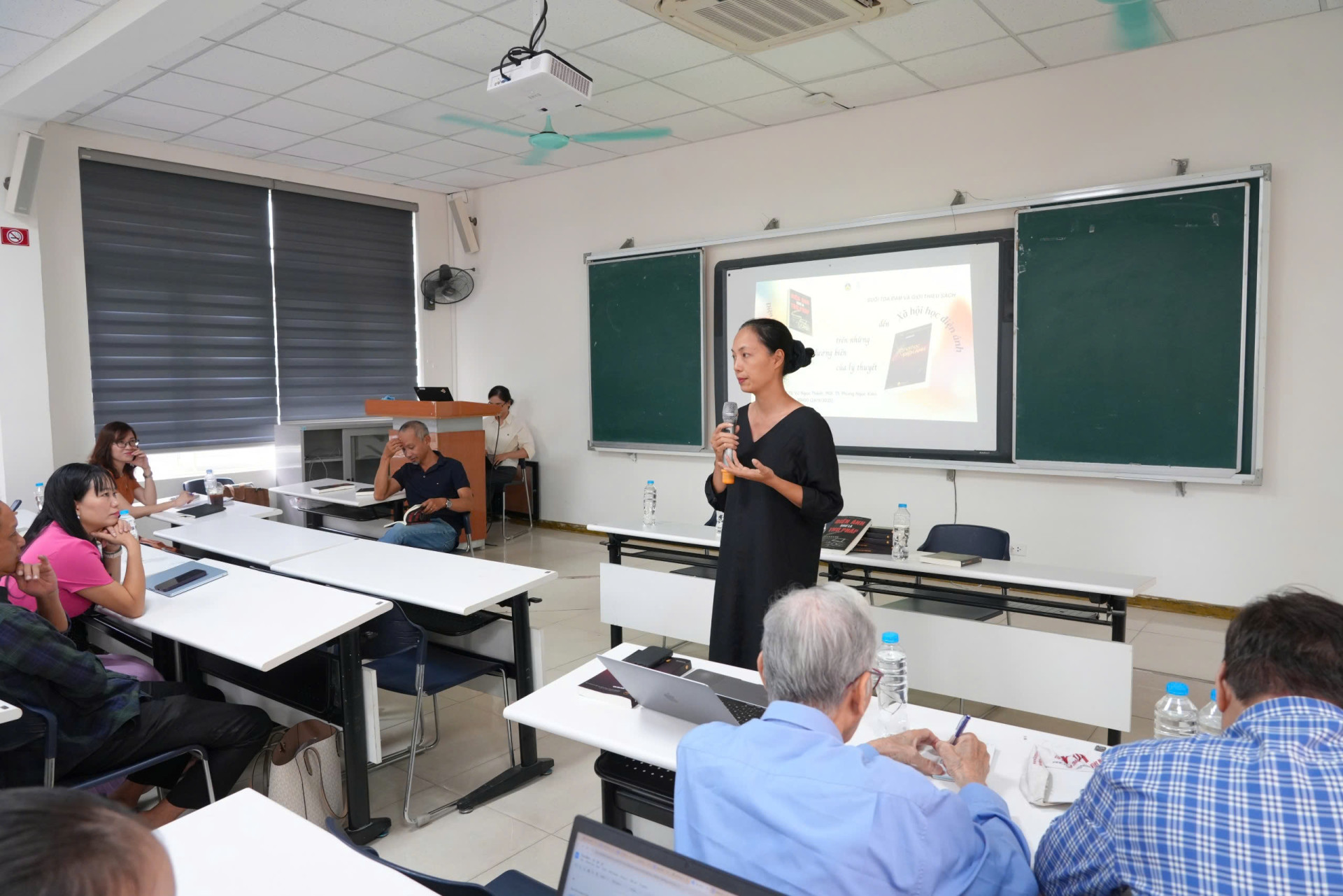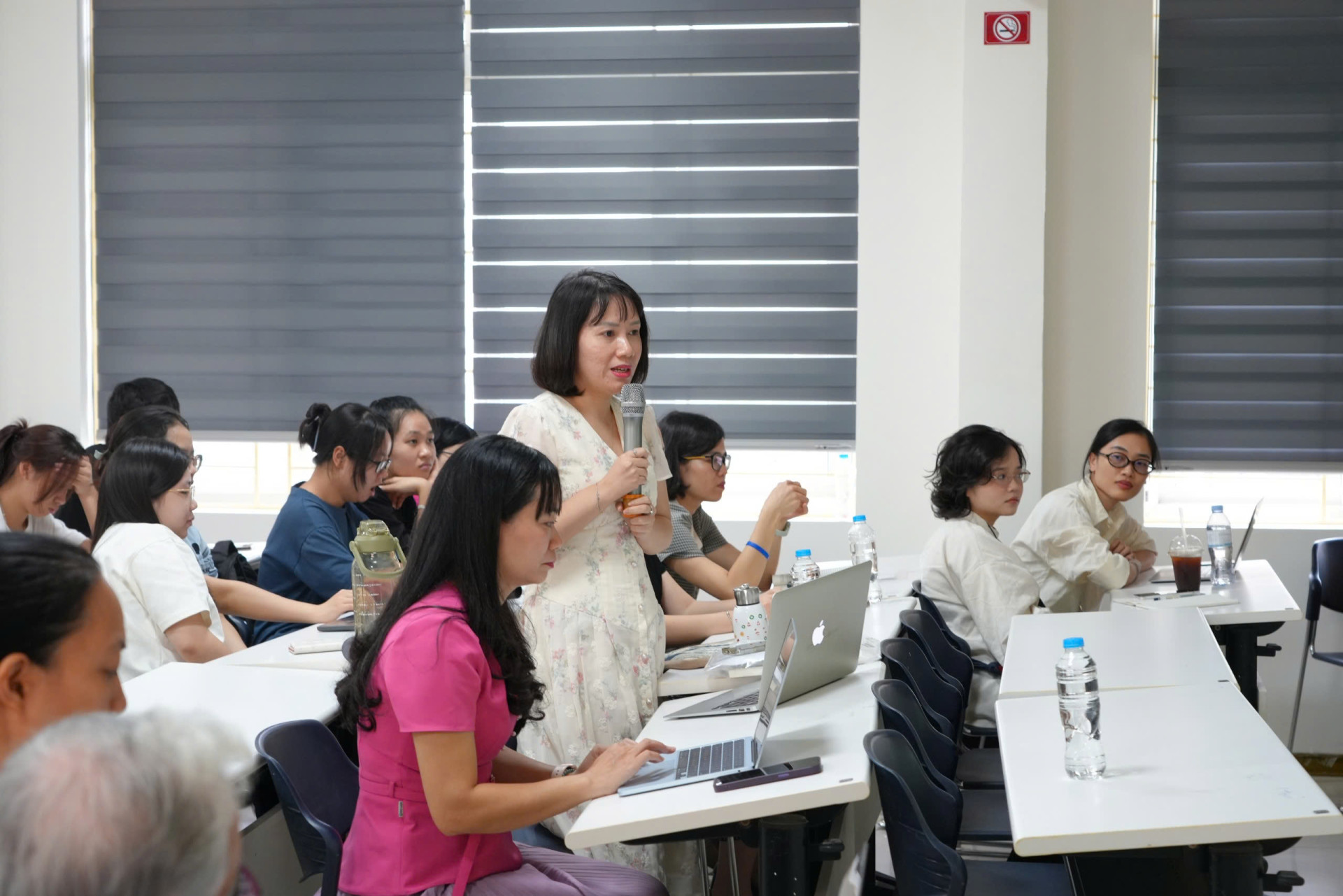The seminar featured two authors who were also speakers: Assoc. Prof. Dr. Vu Ngoc Thanh (former Rector of the Ho Chi Minh City University of Theatre and Film) and Assoc. Prof. Dr. Phung Ngoc Kien (Department of Art Studies, Faculty of Literature). In addition, the event was attended by many experts, researchers, and lecturers in film, as well as readers, students, and trainees from the University of Social Sciences and Humanities and other universities in Hanoi.
Associate Professor Dr. Hoang Cam Giang moderated the seminar.
Opening the seminar, Associate Professor Dr. Hoang Cam Giang (Head of the Department of Art Studies) gave a general introduction to the two authors and their two books, "Cinema as a Technique" and "The Sociology of Cinema," as well as the reasons why the Department proposed that the Faculty of Literature organize a seminar on the research theories of "internal observation" (cinematic techniques) and "external observation" (sociology of cinema) in the field of film research and criticism today. She also introduced the working process of the two authors (Associate Professor Dr. Vu Ngoc Thanh and Associate Professor Dr. Phung Ngoc Kien), which resulted in the two books, important textbooks for film students and film enthusiasts, that are present in the seminar. Professor Giang also introduced the professors who would be commentating on the seminar and the representative of the Faculty of Literature's leadership to deliver the opening remarks. Speaking at the seminar, Dr. Nguyen Thi Nam Hoang (Deputy Head of the Literature Department) shared that the seminar not only demonstrated the individual efforts of the two researchers but also marked a milestone in the Literature Department's contribution to the country's overall culture and arts.

From the insights shared by Associate Professor Dr. Vu Ngoc Thanh, the audience at the panel discussion witnessed the journey of the book "Cinema as a Technique," from its initial stages as a mere impetus to return to the micro aspects of filmmaking, to a systematic theoretical work on "cinematic techniques" across many macro dimensions (drama, narrative, expressive value, and the four basic filmmaking techniques) and through various lenses of modern film theory.
Building upon the theoretical framework of "cinematic techniques" by Associate Professor Dr. Vu Ngoc Thanh, author Phung Ngoc Kien continues to introduce the external aspects of cinema through his book "Sociology of Cinema." The book delves into analyzing the issues of cinema in close relation to social relationships, social institutions within cinema, symbols, the cinematic world, etc.
Associate Professor Phung Ngoc Kien expressed his hope that the book would become a useful reference for students, trainees, researchers, and film enthusiasts.
Associate Professor Dr. Nguyen Thi Nhu Trang (Head of the Department of Literary Theory, Faculty of Literature) emphasized the systematic nature and comprehensive scope of both works in narrating film texts. From the perspective of a film narration expert, "Cinema as a Technique" explains how the formal structure of a film text is constructed, and "The Sociology of Film" examines that structure from the perspective of sociological forces.
Associate Professor Pham Xuan Thach (former Head of the Literature Department) highly praised the results of the two researchers' very serious and persistent scientific work. From in-depth theories on cinema to the analysis of very specific examples of classic films, the two authors have provided readers with many tools to "read cinema" in a "decent, careful, and scientific" way, thereby contributing to the development of Vietnamese cinema, whether from the perspective of a professional or the general public.
Ms. Hoang Da Vu (Deputy Director of the Institute of Theatre and Film, Hanoi University of Theatre and Film) noted that the two works are not only valuable for research and teaching, but also important for those directly working in the profession.
Director Nguyen Hoang Diep affirmed that the two books are elaborate scientific works, providing concrete tools for understanding a film and recreating cinematic knowledge in social life. Drawing on her experience as a filmmaker, Director Hoang Diep also shared insights on the roles of directors, technicians, censorship bodies, and especially the public in determining the vitality and success of a film.
In conclusion, Professor Tran Hinh reaffirmed the contributions of both works: "Cinema as a Technique" provides fundamental, accessible knowledge as an important textbook; while "Sociology of Cinema" opens up many new research directions revolving around the social life of cinema.
The seminar provided a meaningful scientific activity, sparking many thought-provoking exchanges for future research in Vietnamese cinema. The two works, "Cinema as a Technique" and "The Sociology of Cinema," are not only valuable reference materials for teaching and research but also open up new approaches to filmmaking practice.
Here are some photos from the seminar:








